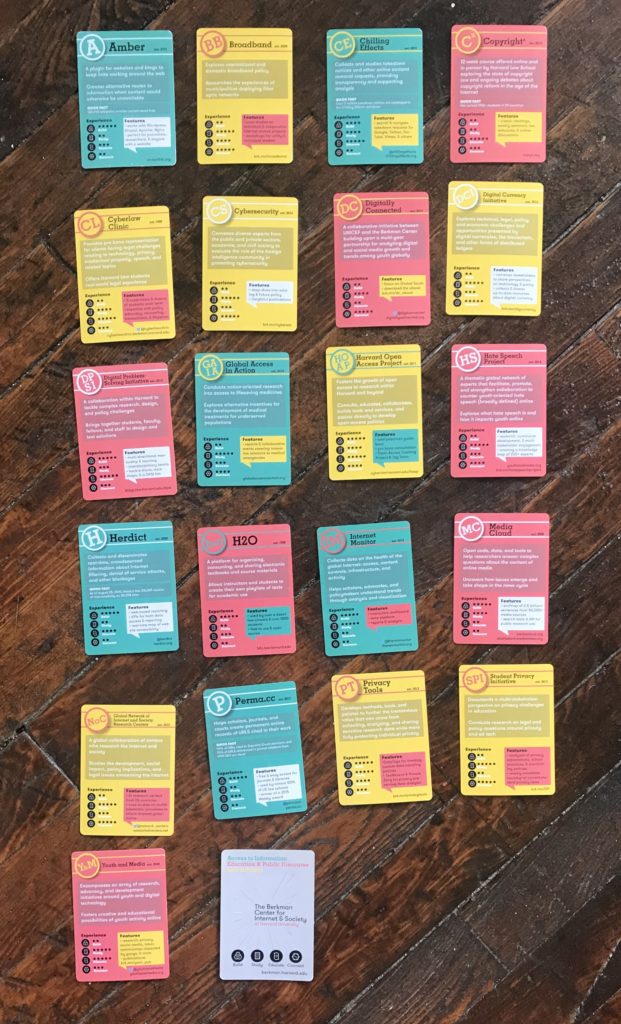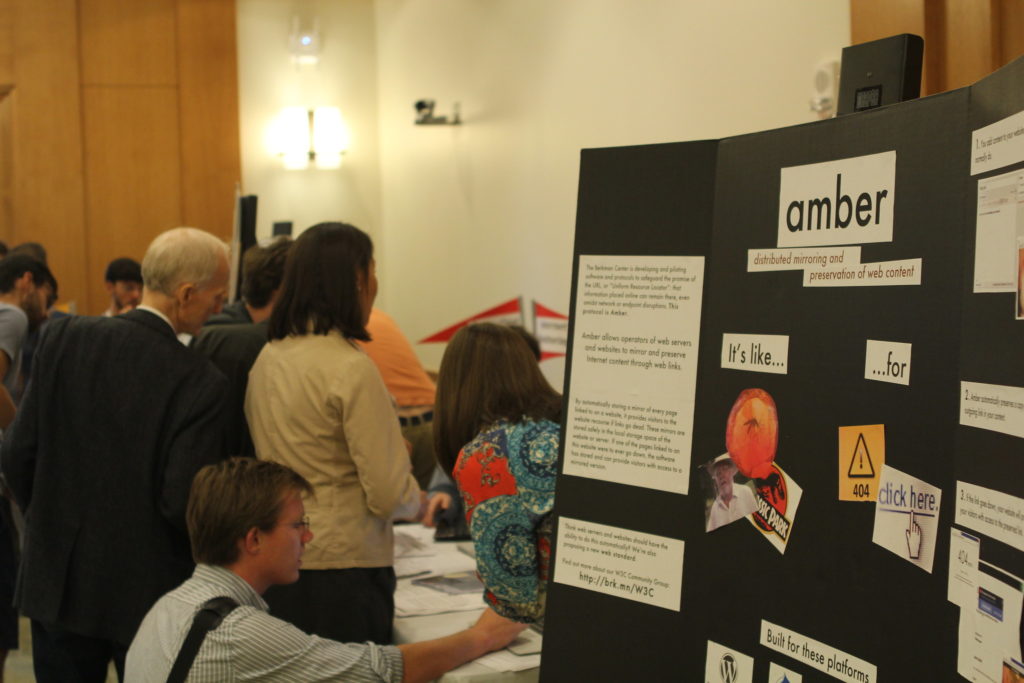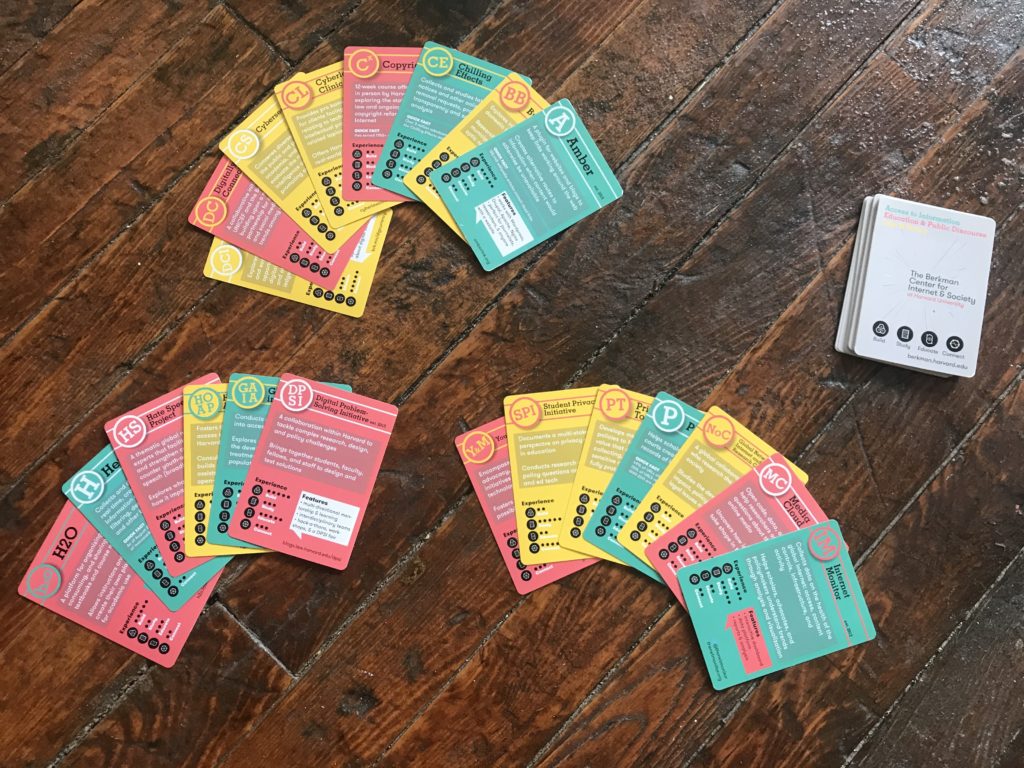Let’s Network: A Card Game
Berkman Klein Center for Internet & Society at Harvard University, 2014-2015
Adobe Illustrator, InDesign
Role: designer, researcher, writer
As a research center with over 30 very diverse projects and over 40 team members, Harvard’s Berkman Klein Center constantly faces the challenge of how to communicate our work simply to new folks, and even to ourselves.
How might we offer new and potential collaborators with a quick and fun glimpse into our work?
Inspired by card games like Pokemon and Magic: The Gathering I created a gamified set of calling cards our projects could use when introducing themselves at one of the many public facing events we held over the course of the year.
Build. Study. Educate. Connect.
With projects ranging from a clearinghouse of data on internet content takedowns, studies on rural broadband access, tools to track web censorship, and scholarship on internet hate speech, the first task was to try to come up with the language to concisely describe our work.
I began by talking with our many project teams about what the heck it is that we do and how we do it.
I led a word cloud exercise, whiteboarding verbs and keywords that could breathe life into the description of our output.
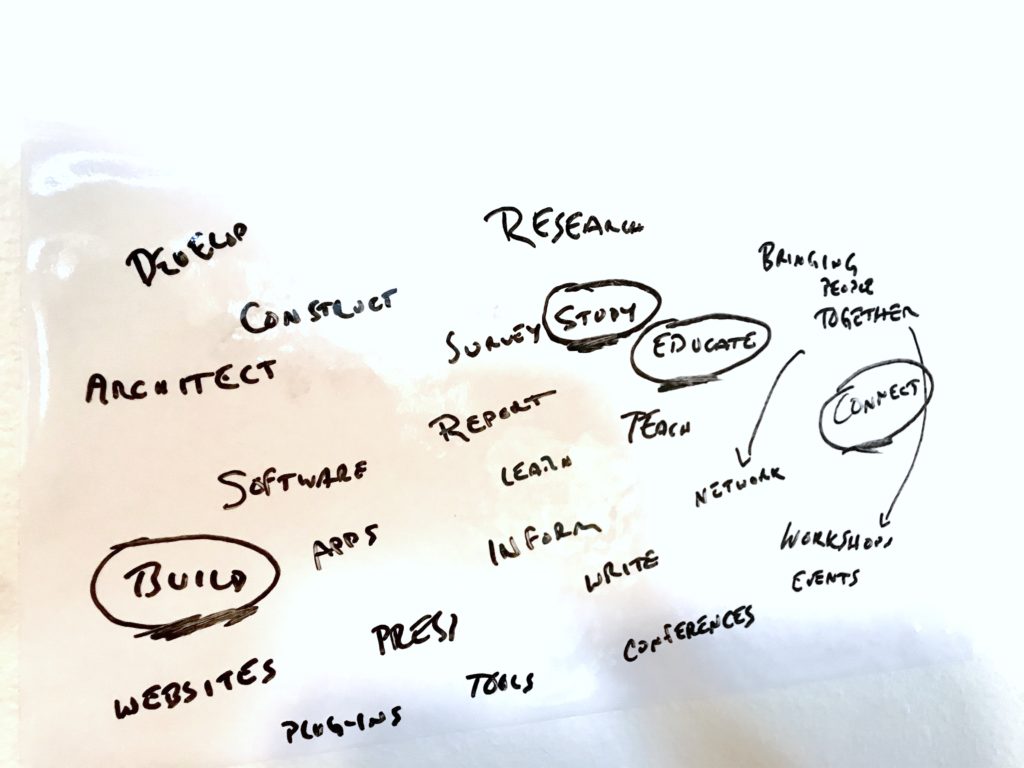
After some ideating and mindmapping exercises we settled on the four modes of our work.
We build – we create tools and websites that improve technology for humanity
We study – we generate research about technology that helps people understand its impact
We educate – we teach, explain, and inform, in and out of the classroom
We connect – we create opportunities for people to meet, network, and learn from one another.
“Gamifying” our projects
Now to make our project calling cards. I narrowed our work down to 21 of our most active projects.
Mocking up a playing card was simple using Adobe Illustrator. I decided on a color palette and typography style. A color palette of rose, aqua, and gold would categorize the projects under a very broad Topic (Aqua: Access to Information, Rose: Education & Public Discourse, Gold: Law & Policy).
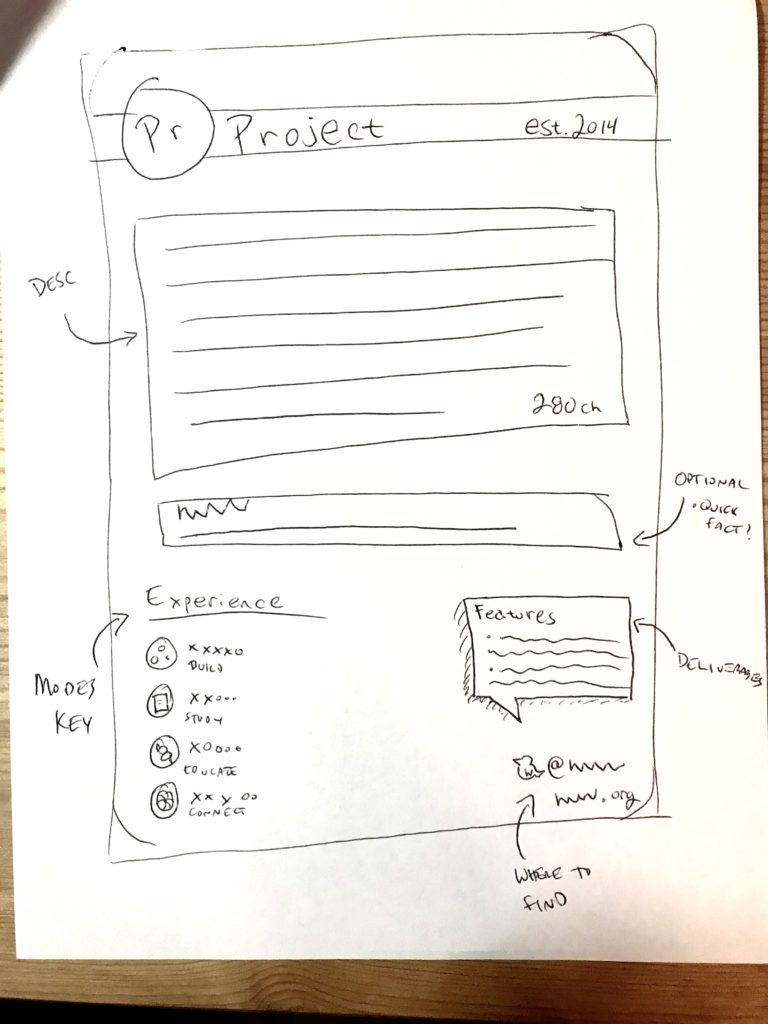
I created the key elements that would help describe the project and help visitors to find us: title, acronym, description, social media, and website.
Our Modes became the “game” element of our cards. Most of our projects operate in multiple modes – Media Cloud, for example, is a tool we built to aggregate a lot of information about the content of news, but it is used to study the news ecosystem and produce reports that explained trends.
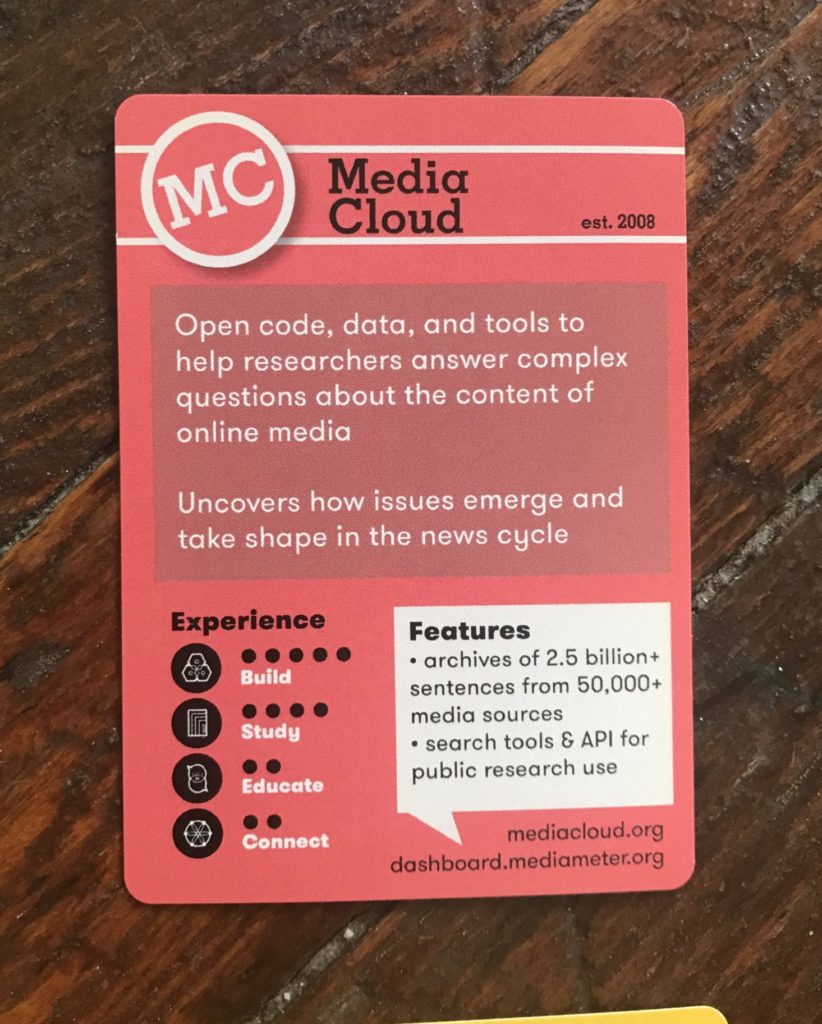
So I took a quick stab at categorizing our projects in each of the different modes, and assessing how much those modes are apparent in their work. On a 1-5 scale, Media Cloud would have five stars for Build and 4 stars for Study. In the parlance of card games, these modes became our “experience” points.
Playtesting
Sharing a prototype with my team, we quickly identified a few necessary refinements. First, the Topic required too much explanation without adding anything useful. We decided to retain the color coding, but de-emphasize the descriptive color key from the cards, and place them on the back.
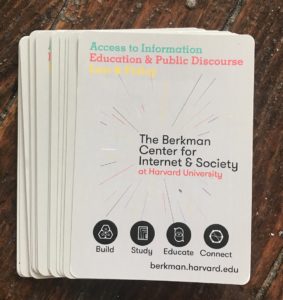
Second, our original visual indication for Modes was misleading. Project managers’ strong reaction to this quickly indicated that we were going in the wrong direction! Giving a project three out of five stars on a particular mode gave the sense that the project was somehow insufficient, like a negative Yelp review, rather than simply exhibiting a unique mix of characteristics. A simple fix was to remove the empty stars (that indicated incompleteness), and turn the remaining stars into solid dots which were less emotionally charged.
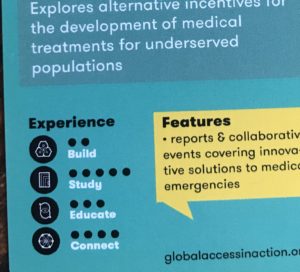
Rollout
The card game debuted at our first recruitment event of the year. Hundreds of students, fellows, and community members joined us at Harvard Law School to get to know our projects and teams.
Visitors went from table to table collecting cards in an effort to complete a whole deck.
Collectors never got around to playing an actual game with these cards, but the real goal of the exercise was accomplished: we had created a warm, in-person connection between our projects and people in our community; described our impact in a concise and delightful way; and built a memorable calling card for people to stay involved.
